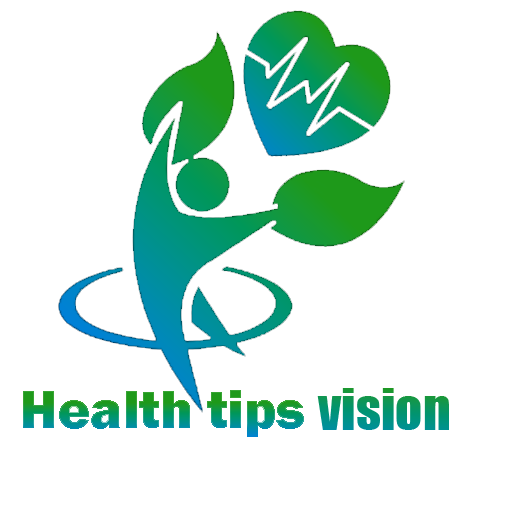
Changing your diet can help you reach a healthy weight, such as eating more proteins, carbohydrates, and healthy fats. You can eat nuts, dried fruits, meat, and smoothies.
What is the best food for weight gain?
If you want to gain weight, it is essential to do it right.
Eating soda, donuts, and other junk foods may initially contribute to weight gain but may increase the risk of heart disease, diabetes, and cancer.
A healthy approach to weight gain involves building a balanced amount of muscle mass and subcutaneous fat instead of a large amount of harmful abdominal fat. A recent animal study suggests that abdominal fat may be associated with an increased risk of cancer.
High body fat also increases your risk of developing type 2 diabetes and other health problems, even if you are not overweight. To gain weight safely, focus on eating more nutrient-dense foods and maintaining an overall healthy lifestyle that includes exercise, getting enough sleep, and reducing stress when possible.
This article describes simple strategies for gaining weight quickly without increasing disease risk.
Different Strategies to Gain Weight

Regardless of why you want to gain weight, there are many strategies you can use to gain weight. Below, we have described various options that can help you gain weight.
Increase your calorie intake.
The most important thing you can do to gain weight is to create a calorie surplus, which means you eat more calories than your body needs. Use this calorie calculator to determine your calorie needs. If the calculator says you want to gain weight slowly and steadily, try eating 300 to 500 calories more than you burn daily. If you gain weight quickly, try to eat about 700 to 1,000 calories more than your daily requirement. Remember that calorie calculators only provide estimates. Your needs can vary by several hundred calories per day. You don’t have to count calories for the rest of your life, but counting calories for the first few days or weeks may be helpful to get an idea of how many calories you are consuming.
SUMMARY: to gain weight, you must consume more calories than your body burns. Aim to consume 300 to 500 calories above the required level to maintain slow weight gain, or 700 to 1,000 calories per day if you want to gain weight quickly.
To gain weight, you probably need to eat extra calories. By starting a strength training program, you can avoid overeating and ensure excess calories go to your muscles and not just fat cells.
Resistance or strength training includes exercises using your body weight and free weights. Strength training leads to muscle hypertrophy, which increases muscle mass. Combining protein supplementation with resistance training can result in additional gains in muscle mass beyond those achieved alone.
One study found that protein supplementation during six weeks of resistance training increased muscle mass gains by 27% in healthy adults (40). If you are starting to exercise, consider engaging a qualified personal trainer or taking a course to help you get started if possible. You can also consult your doctor for any skeletal or health problems. It is best to focus on strength training rather than cardio exercise. Cardio exercises can help you improve your fitness and well-being. However, avoiding this would help because you will burn any extra calories you consume.
SUMMARY
Lifting heavy weights and increasing strength through resistance training can help build muscle mass.
Homemade protein shakes
Homemade protein shakes can be a very nutritious and effective way to gain weight. Making smoothies gives you complete control over the ingredients and can help increase the calorie count. Here are some delicious varieties for you to try. You can combine 2 cups or 470 milliliters (ml) of cow or soy milk if lactose is intolerant.
Chocolate Banana Nut Smoothie: Blend one banana, a scoop of chocolate-covered whey protein, and one tablespoon (15 ml) of peanut butter or other nut butter. Vanilla Smoothie: Blend 1 cup (237 ml) fresh or frozen berries, ice, 1 cup (237 ml) whole milk Greek yogurt, and one scoop of vanilla whey protein. Super Green Shake: Blend 1 cup (237 ml) of spinach, one avocado, one banana, 1 cup (237 ml) of pineapple, and one scoop of unflavored or vanilla whey protein. These shakes provide around 400-600 calories and plenty of protein and other essential vitamins and minerals.
Milk
Milk Dairy has been used for weight gain and muscle building for decades. It balances proteins, carbohydrates, and fats and is a good source of calcium and other vitamins and minerals. If you want to build muscle, milk is an excellent source of protein as it provides both casein and whey protein.
Research from 2018 found that cow’s milk combined with weight lifting can help increase muscle mass. Research has also shown that combining milk or whey protein and casein can lead to more significant weight gain than other protein sources. Try drinking 1 cup (237 ml) of whole milk as a snack, during a meal, or before and after exercise if you exercise to quickly get 149 calories and 8 grams (g) of protein per serving.
Rice
Rice is a convenient and inexpensive source of carbohydrates that can be part of a weight-gain diet. Just 1 cup (158 g) of cooked white rice provides 204 calories, 44 g of carbohydrates, and very little fat. Rice is also relatively high in calories, meaning you can consume many carbohydrates and calories in just one serving. It will help you eat more, especially when you’re not hungry or don’t get full quickly.
If you’re on the go or in a hurry, add 2-minute microwave rice pouches to other protein sources. Another popular method is to make a large pot of rice, refrigerate or freeze individual portions, and combine it with different proteins and fats to create varied meals throughout the week. Rice can be a staple to supplement frequent, smaller meals throughout the day.
The easiest way to add flavor, calories, and a dose of protein is to mix some of these ingredients with cooked rice:
Butter and Parmesan
Broccoli and cheese
scrambled eggs
toasted sesame seeds, peanuts, or cashews
You can also top rice with a sauce, such as:
Curry
Pesto
Alfredo
A plate of rice can quickly become a complete meal. Try this wild rice and kale for a balanced lunch (400 calories per serving).
Dried fruits and nut butter
It can support a weight gain-focused diet. Just a handful of raw almonds (1/4 cup or about 32 g) contains 170 calories, 6 g of protein, and 15 g of fat. Because nuts are high in calories, just two handfuls a day during a meal or as a snack can quickly add hundreds of calories.
You can add peanut butter to snacks or meals like smoothies, yogurt, and crackers to instantly turn it into a high-calorie snack. If you want to boost your mood quickly, try this three-ingredient peanut butter banana smoothie (270 calories from whole milk). If you are allergic to peanuts or other nuts, replace them with another peanut or seed butter that is well tolerated and safe.
Red meat
Red meat is an excellent source of protein that, when combined with strength training, can help build muscle mass. Contains leucine, an amino acid that stimulates muscle protein synthesis. Fatty cuts of meat contain extra calories.
Nuts and peanut butter
Nuts and peanut butter are delicious, high-calorie foods. They are nutrient-dense, high in fat, and can easily be added to many snacks or recipes.
Potatoes and complex carbohydrates
Potatoes and other complex carbohydrates are an inexpensive way to add extra calories. Complex carbohydrates can lead to a constant release of energy. They also provide other nutrients and food groups such as potassium, fiber, vegetables, and whole grains.
Try choosing one of the following sources of complex carbohydrates:
Oats, quinoa, buckwheat, potatoes and sweet potatoes, pumpkin, winter root vegetables, beans and legumes, and other complex carbohydrates.
In addition to increasing calorie intake,
increases the storage of sugar compound complexes in the muscles called glycogen. Glycogen is the primary source of fuel in most sports and activities. Many of these carbohydrate sources also provide resistant starch, which can help feed your gut bacteria. You can eat sweet potatoes and quinoa in this nutritious sweet potato and quinoa breakfast recipe (336 calories per serving).
Other ways to add calories to complex carbohydrates include:
Add cream to potatoes, add grated cheese to quinoa or mashed potatoes, add fats such as olive oil or avocado oil to roasted vegetables, and add hummus to whole grain bread, crackers, or baked potatoes.
Use milk or soy milk instead of water in oatmeal or other savory breakfast cereals.
Salmon and oily fish
Consider these convenient, tasty ways of adding salmon to your diet:
Tuna Salad: Try twisting your usual tuna salad using canned salmon instead and adding olive oil or mayonnaise for more calories.
Cobb Salad
: Make a Cobb salad by replacing traditional chicken with canned salmon and adding bacon, hard-boiled egg, avocado, lettuce, and tomatoes.
Try smoked salmon:
Spread cream cheese on whole wheat bread or crackers, top with smoked salmon, and garnish with cucumbers, tomato slices, or capers.
Salmon Salad:
Make a salmon salad with leafy greens, asparagus, and a dollop of plain Greek yogurt with whole milk, mayonnaise, or sour cream.
Whole grain bread
Whole grain bread can be a practical part of a weight loss diet, especially when combined with a good source of protein or fat-based spreads.
Avocados
Avocados are rich in fats and essential nutrients. They are versatile and can be added to many meals or eaten independently to increase your daily calorie intake.
Eating grains
Eating grains can be a great way to add calories and beneficial weight gain nutrients to your diet. The best cereals with thick, high-calorie nut cream, sweeteners, or whole nuts and seeds
Granola bars
Granola bars are an inexpensive, delicious, and nutrient-dense source of calories for a portable snack.
Dark chocolate
Dark chocolate is rich in antioxidants and other nutrients. It can be an enjoyable part of a weight loss diet.
Cheese
Cheese is a source of protein and has a high-fat content. Add it to your meals when you need more calories and taste.
Greek yogurt made from whole milk.
Greek yogurt made from whole milk is another product that can help you supplement your diet with high-quality protein. It is ideal on its own or as an ingredient in many dishes.
Fats and oils
Try to include fats and oils in your diet, especially if you’re trying to maximize your daily calorie intake.








